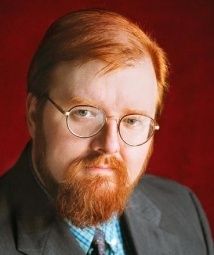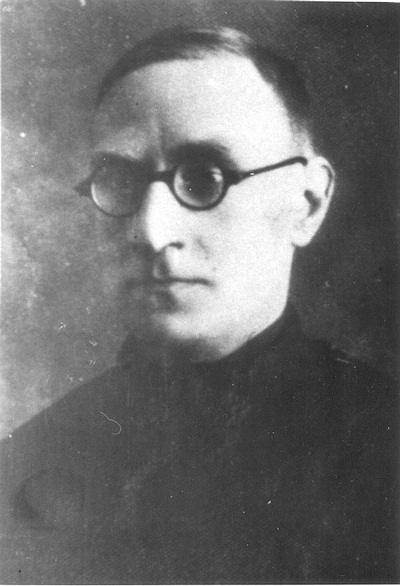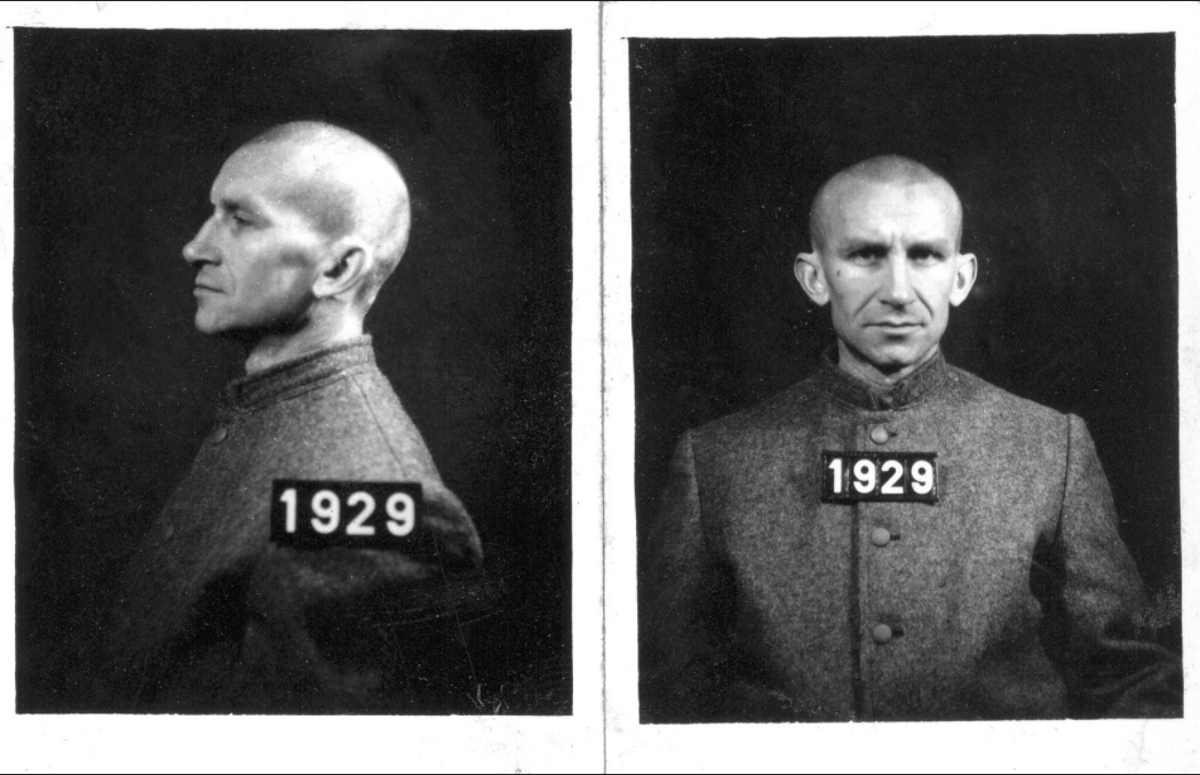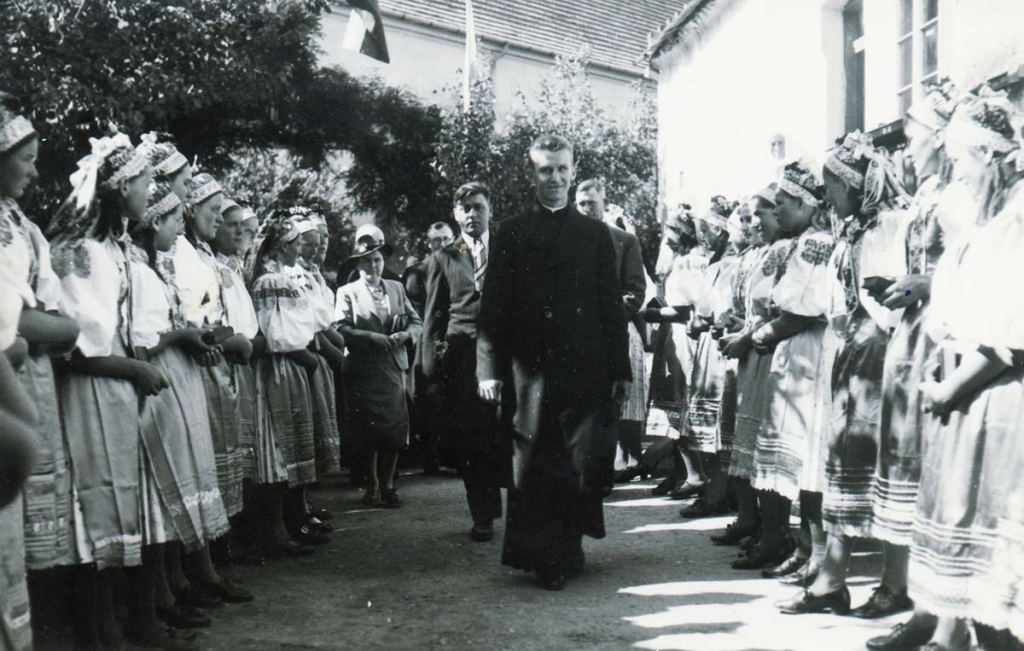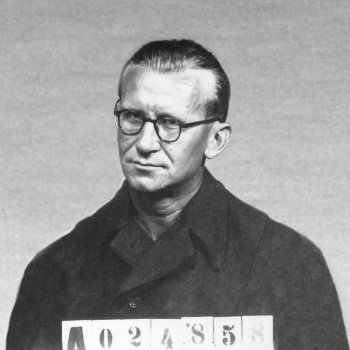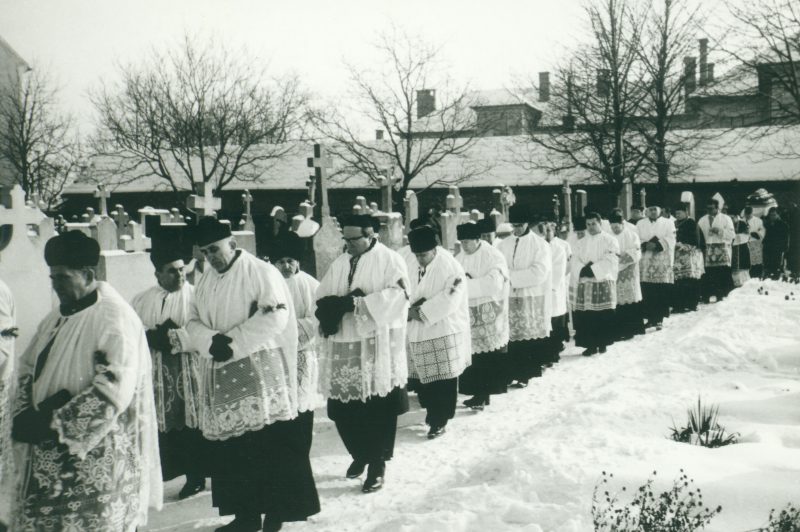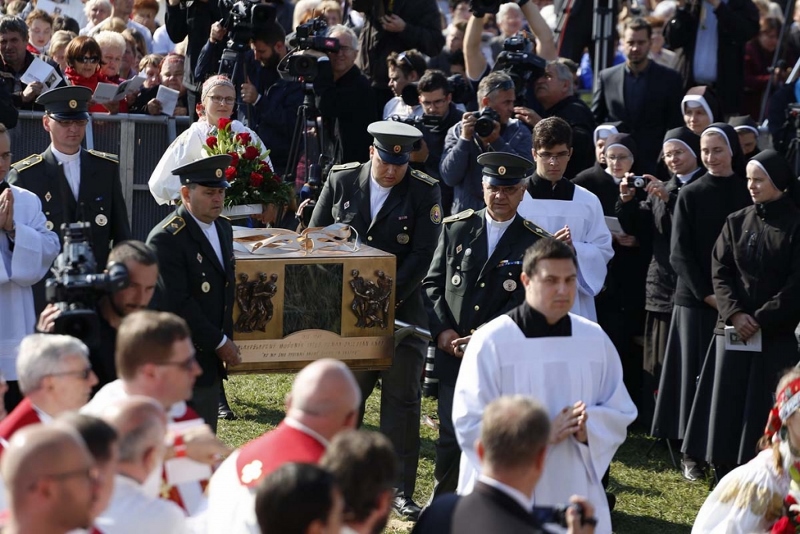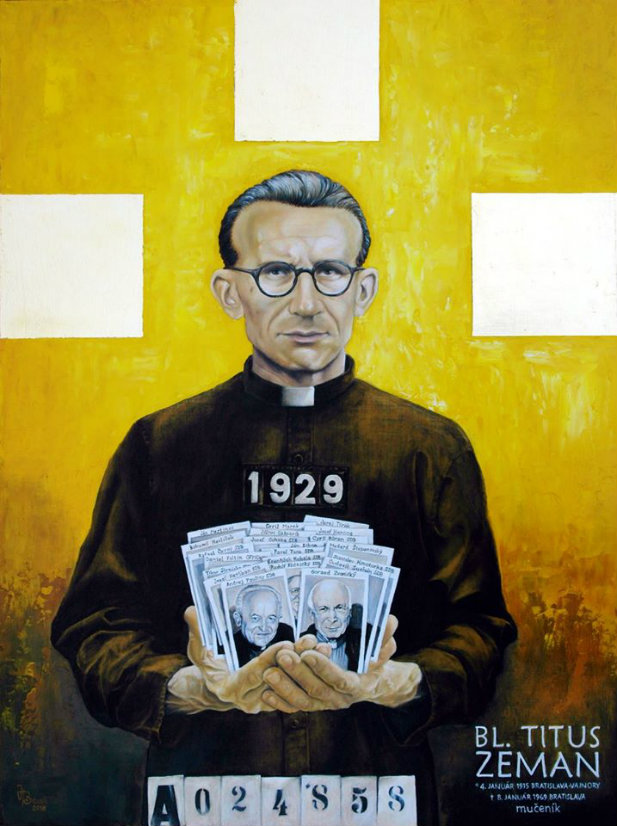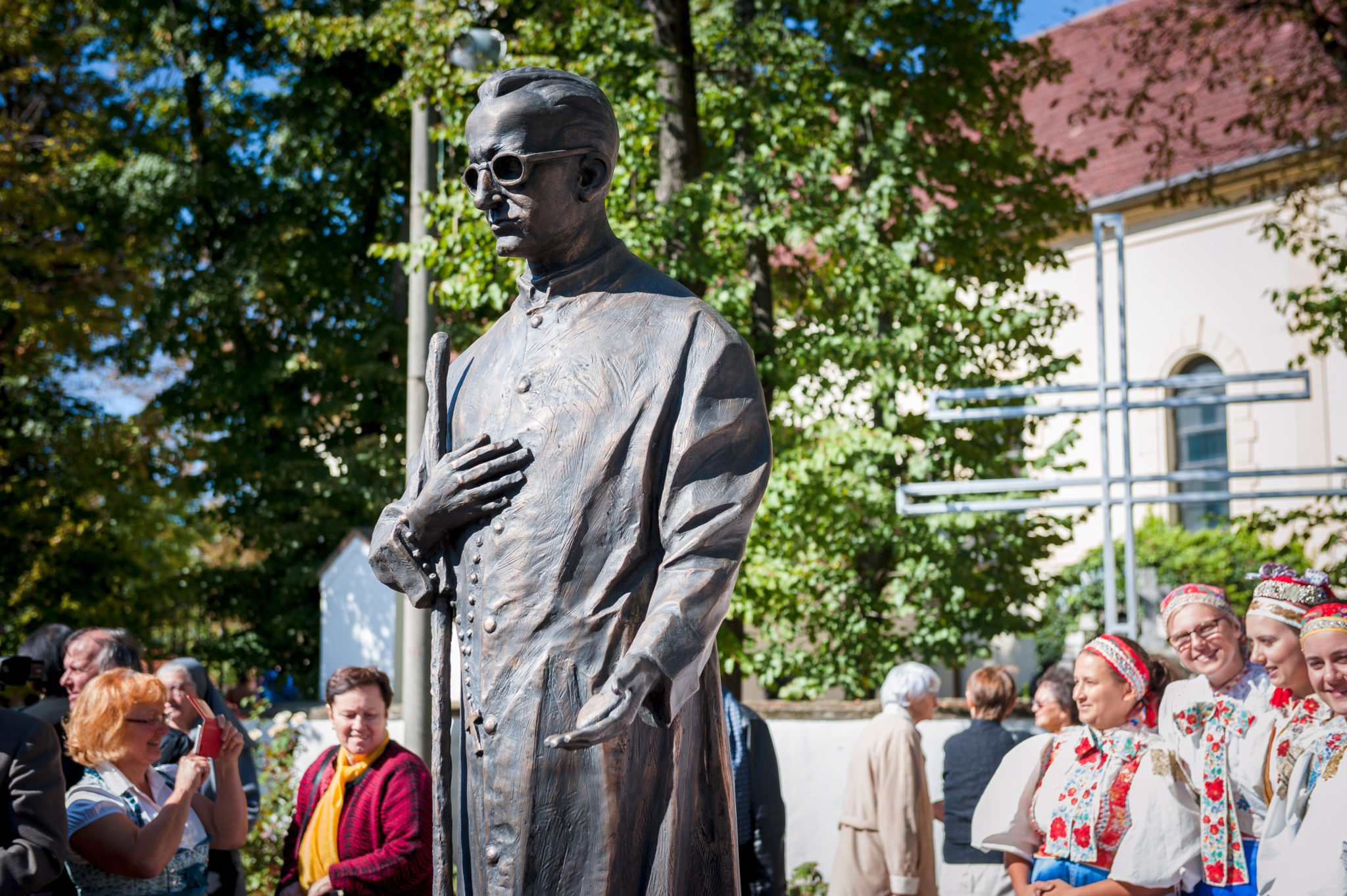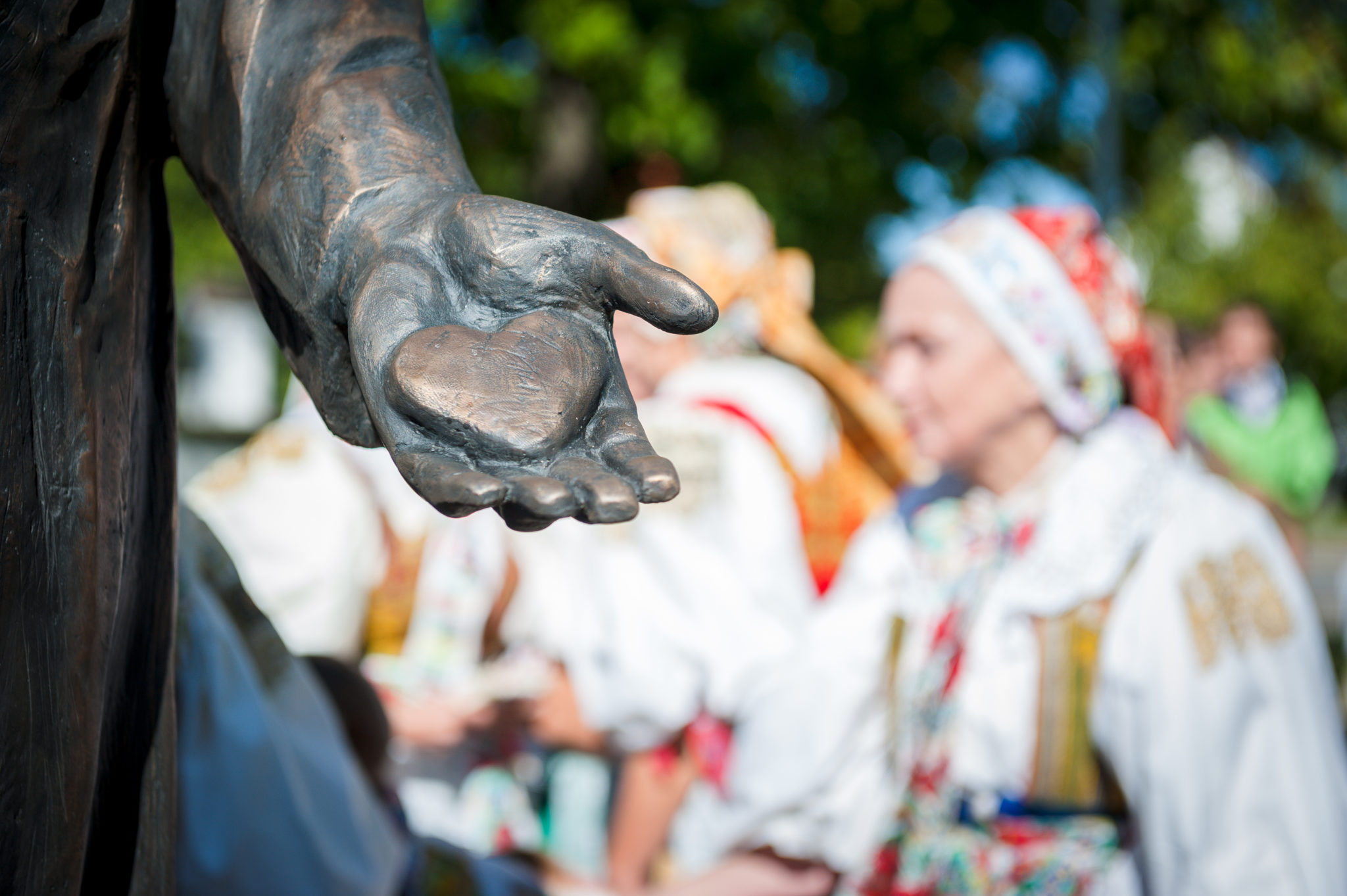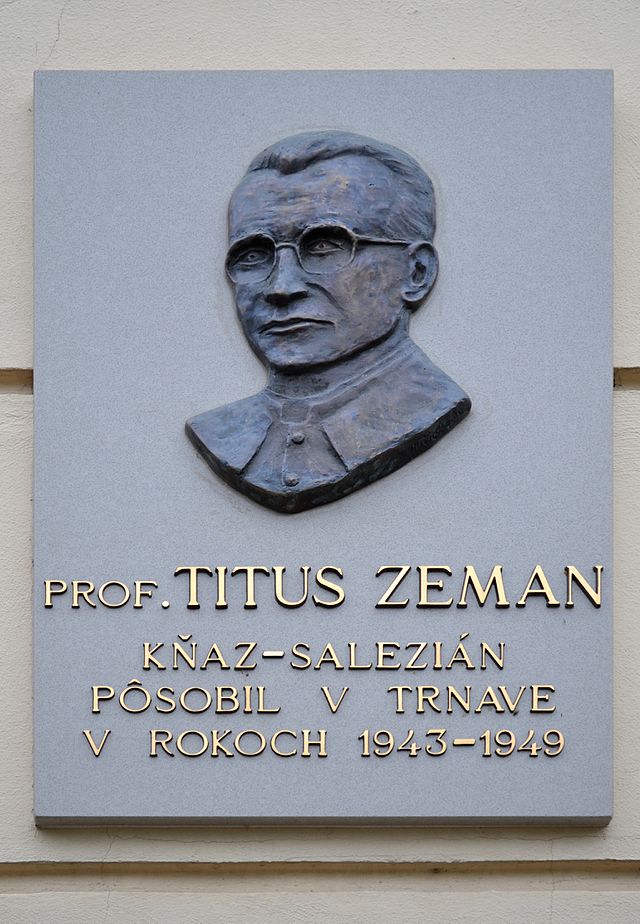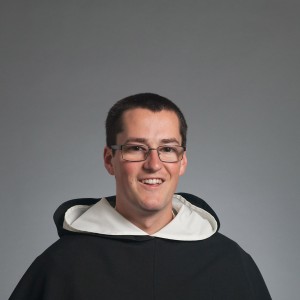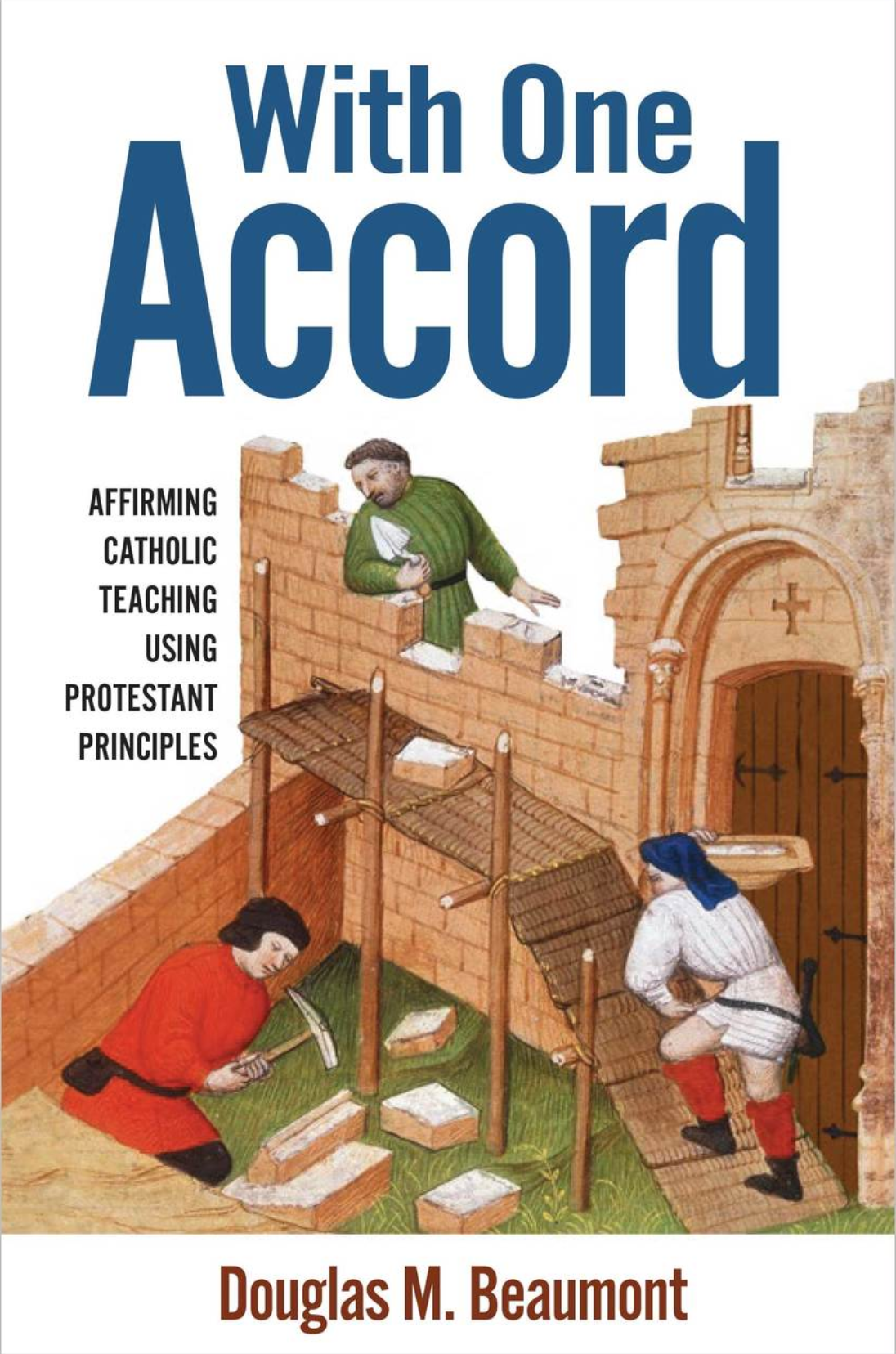
Catechism of the Catholic Church
Mutilation
(CCC 2297) “Except when performed for strictly therapeutic medical reasons, directly intended amputations, mutilations, and sterilizations performed on innocent persons are against the moral law.”
Sexual Identity
(CCC 2333) “Everyone, man and woman, should acknowledge and accept his sexual identity. Physical, moral, and spiritual difference and complementarity are oriented toward the goods of marriage and the flourishing of family life. The harmony of the couple and of society depends in part on the way in which the complementarity, needs, and mutual support between the sexes are lived out.”
(CCC 2393) “By creating the human being man and woman, God gives personal dignity equally to the one and the other. Each of them, man and woman, should acknowledge and accept his sexual identity.”
Body and Soul
(CCC 364) “The human body shares in the dignity of “the image of God”: it is a human body precisely because it is animated by a spiritual soul, and it is the whole human person that is intended to become, in the body of Christ, a temple of the Spirit:
Man, though made of body and soul, is a unity. Through his very bodily condition he sums up in himself the elements of the material world. Through him they are thus brought to their highest perfection and can raise their voice in praise freely given to the Creator. For this reason man may not despise his bodily life. Rather he is obliged to regard his body as good and to hold it in honor since God has created it and will raise it up on the last day.”
Pope Francis
Encyclical letter Laudato Si’ (2015)
(# 155) “Human ecology also implies another profound reality: the relationship between human life and the moral law, which is inscribed in our nature and is necessary for the creation of a more dignified environment. Pope Benedict XVI spoke of an ‘ecology of man’, based on the fact that ‘man too has a nature that he must respect and that he cannot manipulate at will’. It is enough to recognize that our body itself establishes us in a direct relationship with the environment and with other living beings. The acceptance of our bodies as God’s gift is vital for welcoming and accepting the entire world as a gift from the Father and our common home, whereas thinking that we enjoy absolute power over our own bodies turns, often subtly, into thinking that we enjoy absolute power over creation. Learning to accept our body, to care for it and to respect its fullest meaning, is an essential element of any genuine human ecology. Also, valuing one’s own body in its femininity or masculinity is necessary if I am going to be able to recognize myself in an encounter with someone who is different. In this way we can joyfully accept the specific gifts of another man or woman, the work of God the Creator, and find mutual enrichment. It is not a healthy attitude which would seek to cancel out sexual difference because it no longer knows how to confront it.”
(# 56) “Yet another challenge is posed by the various forms of an ideology of gender that ‘denies the difference and reciprocity in nature of a man and a woman and envisages a society without sexual differences, thereby eliminating the anthropological basis of the family. This ideology leads to educational programs and legislative enactments that promote a personal identity and emotional intimacy radically separated from the biological difference between male and female. Consequently, human identity becomes the choice of the individual, one which can also change over time.’ It is a source of concern that some ideologies of this sort, which seek to respond to what are at times understandable aspirations, manage to assert themselves as absolute and unquestionable, even dictating how children should be raised. It needs to be emphasized that ‘biological sex and the socio-cultural role of sex (gender) can be distinguished but not separated.’ …It is one thing to be understanding of human weakness and the complexities of life, and another to accept ideologies that attempt to sunder what are inseparable aspects of reality. Let us not fall into the sin of trying to Updated August 7, 2019 3 replace the Creator. We are creatures, and not omnipotent. Creation is prior to us and must be received as a gift. At the same time, we are called to protect our humanity, and this means, in the first place, accepting it and respecting it as it was created.”
(# 285) “Beyond the understandable difficulties which individuals may experience, the young need to be helped to accept their own body as it was created, for ‘thinking that we enjoy absolute power over our own bodies turns, often subtly, into thinking that we enjoy absolute power over creation… An appreciation of our body as male or female is also necessary for our own self-awareness in an encounter with others different from ourselves. In this way we can joyfully accept the specific gifts of another man or woman, the work of God the Creator, and find mutual enrichment.’ Only by losing the fear of being different, can we be freed of self-centeredness and self-absorption. Sex education should help young people to accept their own bodies and to avoid the pretension ‘to cancel out sexual difference because one no longer knows how to deal with it.’
(# 286) “Nor can we ignore the fact that the configuration of our own mode of being, whether as male or female, is not simply the result of biological or genetic factors, but of multiple elements having to do with temperament, family history, culture, experience, education, the influence of friends, family members and respected persons, as well as other formative situations. It is true that we cannot separate the masculine and the feminine from God’s work of creation, which is prior to all our decisions and experiences, and where biological elements exist which are impossible to ignore. But it is also true that masculinity and femininity are not rigid categories. It is possible, for example, that a husband’s way of being masculine can be flexibly adapted to the wife’s work schedule. Taking on domestic chores or some aspects of raising children does not make him any less masculine or imply failure, irresponsibility or cause for shame. Children have to be helped to accept as normal such healthy ‘exchanges’ which do not diminish the dignity of the father figure. A rigid approach turns into an over accentuation of the masculine or feminine, and does not help children and young people to appreciate the genuine reciprocity incarnate in the real conditions of matrimony. Such rigidity, in turn, can hinder the development of an individual’s abilities, to the point of leading him or her to think, for example, that it is not really masculine to cultivate art or dance, or not very feminine to exercise leadership. This, thank God, has changed, but in some places deficient notions still condition the legitimate freedom and hamper the authentic development of children’s specific identity and potential.”
Address to Priests, Religious, Seminarians and Pastoral Workers during the Apostolic Journey to Georgia and Azerbaijan (October 1, 2016)
“You mentioned a great enemy to marriage today: the theory of gender. Today there is a world war to destroy marriage. Today there are ideological colonizations which destroy, not with weapons, but with ideas. Therefore, there is a need to defend ourselves from ideological colonizations.”
Address to the Polish Bishops during the Apostolic Journey to Poland (July 27, 2016)
“In Europe, America, Latin America, Africa, and in some countries of Asia, there are genuine forms of ideological colonization taking place. And one of these – I will call it clearly by its name – is [the ideology of] ‘gender’. Today children – children! – are taught in school that everyone can choose his or her sex. Why are they teaching this? Because the books are provided by the persons and institutions that give you money. These forms of ideological colonization are also supported by influential countries. And this terrible! “In a conversation with Pope Benedict, who is in good health and very perceptive, he said to me: ‘Holiness, this is the age of sin against God the Creator’. He is very perceptive. God created man and woman; God created the world in a certain way… and we are doing the exact opposite. God gave us things in a ‘raw’ state, so that we could shape a culture; and then with this culture, we are shaping things that bring us back to the ‘raw’ state! Pope Benedict’s observation should make us think. ‘This is the age of sin against God the Creator’. That will help us.”
Address to Équipes de Notre Dame (September 10, 2015)
“This mission which is entrusted to them, is all the more important inasmuch as the image of the family — as God wills it, composed of one man and one woman in view of the good of the spouses and also of the procreation and upbringing of children — is deformed through powerful adverse projects supported by ideological trends.”
Address to the Bishops of Puerto Rico (June 8, 2015)
“The complementarity of man and woman, the pinnacle of divine creation, is being questioned by the so-called gender ideology, in the name of a more free and just society. The differences between man and woman are not for opposition or subordination, but for communion and generation, always in the ‘image and likeness’ of God.” Full text General Audience on Man and Woman (April 15, 2015) “For example, I ask myself, if the so-called gender theory is not, at the same time, an expression of frustration and resignation, which seeks to cancel out sexual difference because it no longer knows how to confront it. Yes, we risk taking a step backwards. The removal of difference in fact creates a problem, not a solution.”
Address in Naples (March 23, 2015)
“The crisis of the family is a societal fact. There are also ideological colonializations of the family, different paths and proposals in Europe and also coming from overseas. Then, there is the mistake of the human mind — gender theory — creating so much confusion.”
Meeting with Families in Manila (January 16, 2015)
“Let us be on guard against colonization by new ideologies. There are forms of ideological colonization which are out to destroy the family.”
Pope Benedict XVI
Encyclical letter Deus Caritas Est (2005)
(# 5) “Yet the contemporary way of exalting the body is deceptive. Eros, reduced to pure ‘sex’, has become a commodity, a mere ‘thing’ to be bought and sold, or rather, man himself becomes a commodity. This is hardly man’s great ‘yes’ to the body. On the contrary, he now considers his body and his sexuality as the purely material part of himself, to be used and exploited at will.”
(# 11) “While the biblical narrative does not speak of punishment, the idea is certainly present that man is somehow incomplete, driven by nature to seek in another the part that can make him whole, the idea that only in communion with the opposite sex can he become ‘complete’… Eros is somehow rooted in man’s very nature; Adam is a seeker, who ‘abandons his mother and father’ in order to find woman; only together do the two represent complete humanity and become ‘one flesh’. The second aspect is equally important. From the standpoint of creation, eros directs man towards marriage, to a bond which is unique and definitive; thus, and only thus, does it fulfill its deepest purpose. Corresponding to the image of a monotheistic God is monogamous marriage.”
Address to the Pontifical Council “Cor Unum” (January 19, 2013)
“The Christian vision of man is, in fact, a great ‘yes’ to the dignity of persons called to an intimate filial communion of humility and faithfulness. The human being is not a self-sufficient individual nor an anonymous element in the group. Rather he is a unique and unrepeatable person, intrinsically ordered to relationships and sociability. Thus the Church reaffirms her great ‘yes’ to the dignity and beauty of marriage as an expression of the faithful and generous bond between man and woman, and her no to ‘gender’ philosophies, because the reciprocity between male and female is an expression of the beauty of nature willed by the Creator.”
Address to the Roman Curia (December 21, 2012)
“These words lay the foundation for what is put forward today under the term ‘gender’ as a new philosophy of sexuality. According to this philosophy, sex is no longer a given element of nature that man has to accept and personally make sense of: it is a social role that we choose for ourselves, while in the past it was chosen for us by society. The profound falsehood of this theory and of the anthropological revolution contained within it is obvious. People dispute the idea that they have a nature, given by their bodily identity, that serves as a defining element of the human being. They deny their nature and decide that it is not something previously given to them, but that they make it for themselves.”
Address to the German Bundestag (September 22, 2011)
“…There is also an ecology of man. Man too has a nature that he must respect and that he cannot manipulate at will. Man is not merely self-creating freedom. Man does not create himself. He is intellect and will, but he is also nature, and his will is rightly ordered if he respects his nature, listens to it and accepts himself for who he is, as one who did not create himself. In this way, and in no other, is true human freedom fulfilled.”
Pope St. John Paul II
Letter to Families (1994)
(# 6) “Man is created ‘from the very beginning’ as male and female: the light of all humanity… is marked by this primordial duality. From it there derive the ‘masculinity’ and the ‘femininity’ of individuals, just as from it every community draws its own unique richness in the mutual fulfillment of persons… Hence one can discover, at the very origins of human society, the qualities of communion and of complementarity.”
(# 19) “…the human family is facing the challenge of a new Manichaeanism, in which body and spirit are put in radical opposition; the body does not receive life from the spirit, and the spirit does not give life to the body. Man thus ceases to live as a person and a subject. Regardless of all intentions and declarations to the contrary, he becomes merely an object. This neo-Manichaean culture has led, for example, to human sexuality being regarded more as an area for manipulation and exploitation than as the basis of that primordial wonder which led Adam on the morning of creation to exclaim before Eve: ‘This at last is bone of my bones and flesh of my flesh’ (Gen 2:23).”
Theology of the Body
Pope John Paul II, Man and Woman He Created Them: A Theology of the Body, trans. Michael Waldstein (Boston: Pauline Books & Media, 2006)
(# 9:3) “The account of the creation of man in Genesis 1 affirms from the beginning and directly that man was created in the image of God inasmuch as he is male and female… man became the image of God not only through his own humanity, but also through the communion of persons, which man and woman form from the very beginning.”
(# 9:5) “Masculinity and femininity express the twofold aspect of man’s somatic constitution… and indicate, in addition… the new consciousness of the meaning of one’s body. This meaning, one can say, consists in reciprocal enrichment.”
(# 10:1) “Femininity in some way finds itself before masculinity, while masculinity confirms itself through femininity. Precisely the function of sex [that is, being male or female], which in some way is ‘constitutive for the person’ (not only ‘an attribute of the person’), shows how deeply man, with all his spiritual solitude, with the uniqueness and unrepeatability proper to the person, is constituted by the body as ‘he’ or ‘she’.”
(# 14:4) “The body, which expresses femininity ‘for’ masculinity and, vice versa, masculinity ‘for’ femininity, manifests the reciprocity and the communion of persons.”
Congregation for the Doctrine of the Faith Letter on the Collaboration of Men and Women in the Church and in the World (2004)
(# 2) “In this perspective [i.e., that of gender ideology], physical difference, termed sex, is minimized, while the purely cultural element, termed gender, is emphasized to the maximum and held to be primary. The obscuring of the difference or duality of the sexes has enormous consequences on a variety of levels. This theory of the human person, intended to promote prospects for equality of women through liberation from biological determinism, has in reality inspired ideologies which, for example, call into question the family, in its natural two-parent structure of mother and father, and make homosexuality and heterosexuality virtually equivalent, in a new model of polymorphous sexuality.”
(# 12) “Male and female are thus revealed as belonging ontologically to creation and destined therefore to outlast the present time, evidently in a transfigured form.”
Persona Humana: Declaration on Certain Questions Concerning Sexual Ethics (1975)
(III) “… There can be no true promotion of man’s dignity unless the essential order of his nature is respected.”
Congregation for Catholic Education
“Male and Female He Created Them”: Towards a Path of Dialogue on the Question of Gender Theory in Education (2019)
(# 1) “It is becoming increasingly clear that we are now facing with what might accurately be called an educational crisis, especially in the field of affectivity and sexuality. In many places, curricula are being planned and implemented which “allegedly convey a neutral conception of the person and of life, yet in fact reflect an anthropology opposed to faith and to right reason”. The disorientation regarding anthropology which is a widespread feature of our cultural landscape has undoubtedly helped to destabilize the family as an institution, bringing with it a tendency to cancel out the differences between men and women, presenting them instead as merely the product of historical and cultural conditioning.” ** This entire document deals with gender theory and education. The above is the first paragraph.
Compendium of the Social Doctrine of the Church
(# 224) “Faced with theories that consider gender identity as merely the cultural and social product of the interaction between the community and the individual, independent of personal sexual identity without any reference to the true meaning of sexuality, the Church does not tire of repeating her teaching: ‘Everyone, man and woman, should acknowledge and accept his sexual identity. Physical, moral and spiritual difference and complementarities are oriented towards the goods of marriage and the flourishing of family life. . . .’ According to this perspective, it is obligatory that positive law be conformed to the natural law, according to which sexual identity is indispensable, because it is the objective condition for forming a couple in marriage” (emphasis in original, internal citation omitted).
Pontifical Council for the Family
Family, Marriage and “De Facto” Unions (2000)
(# 8) “In the process that could be described as the gradual cultural and human de-structuring of the institution of marriage, the spread of a certain ideology of ‘gender’ should not be underestimated. According to this ideology, being a man or a woman is not determined Updated August 7, 2019 8 fundamentally by sex but by culture. Therefore, the very bases of the family and inter-personal relationships are attacked.”
(# 8) “Starting from the decade between 1960-1970, some theories… hold not only that generic sexual identity (‘gender’) is the product of an interaction between the community and the individual, but that this generic identity is independent from personal sexual identity: i.e., that masculine and feminine genders in society are the exclusive product of social factors, with no relation to any truth about the sexual dimension of the person. In this way, any sexual attitude can be justified, including homosexuality, and it is society that ought to change in order to include other genders, together with male and female, in its way of shaping social life.”
USCCB: Various Documents
Chairmen Letter to U.S. Senators regarding ENDA Legislation (2013)
“ENDA’s definition of ‘gender identity’ lends force of law to a tendency to view ‘gender as nothing more than a social construct or psychosocial reality, which a person may choose at variance from his or her biological sex.”
ENDA Backgrounder (2013)
“ENDA defines ‘gender identity’ as ‘the gender-related identity, appearance, or mannerisms or other gender-related characteristics of an individual, with or without regard to the individual’s designated sex at birth.’”
“ENDA’s treatment of ‘gender identity would lend the force of law to a tendency to view ‘gender’ as nothing more than a social construct or psychosocial reality that can be chosen at variance from one’s biological sex. Second, ENDA’s treatment of ‘gender identity’ would adversely affect the privacy and associational rights of others. In this respect, ENDA would require workplace rules that violate the legitimate privacy expectations of other employees… Third, ENDA would make it far more difficult for organizations and employees with moral and religious convictions about the importance of sexual difference, and the biological basis of sexual identity, to speak and act on those beliefs.”
Chairmen Statement on ENDA-style Executive Order (2014)
“[The executive order] lends the economic power of the federal government to a deeply flawed understanding of human sexuality, to which faithful Catholics and many other people of faith will not assent… “The executive order prohibits ‘gender identity’ discrimination, a prohibition that is previously unknown at the federal level, and that is predicated on the false idea that ‘gender’ is nothing more than a social construct or psychological reality that can be chosen at variance from one’s biological sex. This is a problem not only of principle but of practice, as it will jeopardize the privacy and associational rights of both federal contractor employees and federal employees.”
Chairmen Statement on Department of Labor Regulations (2014)
“The regulations published on December 3 [2014] by the U.S. Department of Labor implement the objectionable Executive Order that President Obama issued in July to address what the Administration has described as ‘sexual orientation’ and ‘gender identity’ discrimination in employment by federal contractors. . . . [T]he regulations advance the false ideology of ‘gender identity,’ which ignores biological reality and harms the privacy and associational rights of both contractors and their employees.”
Chairmen Statement on the Violence Against Women Reauthorization Act (2013)
“Unfortunately, we cannot support the version of the ‘Violence Against Women Reauthorization Act of 2013’ passed by the House of Representatives and the Senate (S. 47) because of certain language it contains. Among our concerns are those provisions in S. 47 that refer to ‘sexual orientation’ and ‘gender identity.’ All persons must be protected from violence, but codifying the classifications ‘sexual orientation’ and ‘gender identity’ as contained in S. 47 is problematic. These two classifications are unnecessary to establish the just protections due to all persons. They undermine the meaning and importance of sexual difference. They are unjustly exploited for purposes of marriage redefinition, and marriage is the only institution that unites a man and a woman with each other and with any children born from their union.”
Ethical and Religious Directives for Catholic Health Care Services (5th Edition)
(# 53) “Direct sterilization of either men or women, whether permanent or temporary, is not permitted in a Catholic health care institution. Procedures that induce sterility are permitted when their direct effect is the cure or alleviation of a present and serious pathology and a simpler treatment is not available.” (No. 70) “Catholic health care organizations are not permitted to engage in immediate material cooperation in actions that are intrinsically immoral, such as abortion, euthanasia, assisted suicide, and direct sterilization.”
For further related USCCB resources, see:
• USCCB, Marriage: Love and Life in the Divine Plan (2009), https://www.usccb.org/resources/pastoral-letter-marriage-love-and-life-in-the-divine-plan.pdf
• USCCB, Ministry to Persons with a Homosexual Inclination: Guidelines for Pastoral Care (2006), https://www.usccb.org/issues-and-action/human-life-and-dignity/homosexuality/upload/minstry-persons-homosexual-inclination-2006.pdf
• Made for Each Other (video, viewer’s guide, and resource booklet), available at www.marriageuniqueforareason.org
Love & truth,
Matthew
